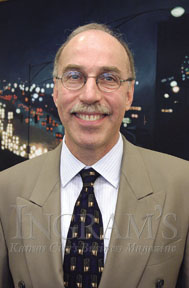by irv belzer
Beyond Billable Hours

If a law firm analyzes its costs, it
can provide real value to clients through alternatives to hourly rates,
but only through trusting, candid communication with the clients throughout
the representation. Through jointly held expectations of the tasks, costs
and results, the law firm can create a win-win pricing scenario that gives
more predictability to the client and places incentives where the client
and law firm believe they should be.
The first step in alternative billing is to break the legal matter down
into phases and determine length and appropriate staffing mix for each
phase. By considering the cost of such phases in prior cases or transactions
and how technology can most effectively be used in the circumstance, the
firm and client can create a reasonable budget per phase and determine
usefulness of various alternative fee arrangements.
Effective alternative fee arrangements reflect factors such as value,
complexity, risk/exposure and innovation. Each arrangement reflects the
specifics of the situation, and in many instances billable hours may be
preferable. The following are a few alternative structures to the hourly
rate that we have in place or have recommended:
Fixed Fees. Fixed Fees may be appropriate for matters that are
frequent and readily definable as to scope and content. This approach
works when firm and client have a clear understanding of the common expectations
and belief that the results are highly predictable. Examples include smaller,
repetitive litigation matters, simple wills or lease reviews.
Fixed Fee with Safety Valve. This is a fixed fee arrangement for which,
if the fee based on hourly rates (at the close of the engagement or after
a set period of time) is a certain percentage under the fixed fee, the
firm rebates a part of the "savings" to the client. If the hourly
fee is more than a certain percent over the fixed fee, then the client
partially reimburses the law firm for the overage at a preset rate or
percentage. This is often used in larger matters when client and firm
share beliefs about scope of engagement and expected outcome, but adverse
parties’ actions may have a significant impact on the scope of the
firm’s involvement.
Blended Rates. This arrangement provides a single rate calculated
for the time charges for all lawyers working on a particular matter or
set of matters, regardless of the lawyers’ usual rates.
Hour BankSM The client commits to purchase
a specific block of hours in a particular area or areas of law, for example,
wrongful discharge employment litigation (area of law) or all acquisitions
valued in a certain value range (nature of engagement). The firm and client
then set a blended rate for the time expended in each area. This structure
usually includes a safety valve arrangement that is similar to the one
described above in Fixed Fee with Safety Valve. This approach is most
appropriate when the client has a sufficient historical inventory of cases
or matters on which to predict the number of hours to purchase.
Task-Based Billing. The case or project is divided into discreet
segments and a set fee determined for each part. The parties can agree
at the beginning of the case or project or can set up specific intervals
at which time the fee for that certain task can be determined or adjusted.
The American Bar Association has created a system identifying the segments
for the number of types of engagements, and we have a number of clients
for whom we maintain records on the ABA system.
Alternatives to the billable hour can provide the client with a better
degree of predictability and a better sense of the value of the services,
provided that the clients and attorneys continue their communication about
the billing arrangements and the substance of the matter throughout the
engagement. Success of the billing arrangement, like the success of the
rest of the representation, depends not only on the substantive ability
of the lawyer, but on the quality of the relationship between the lawyer
and client
Irv Belzer is the resident managing partner of Bryan Cave LLP, Kansas City/Johnson County Offices. He may be reached by phone at 816.374.3200.